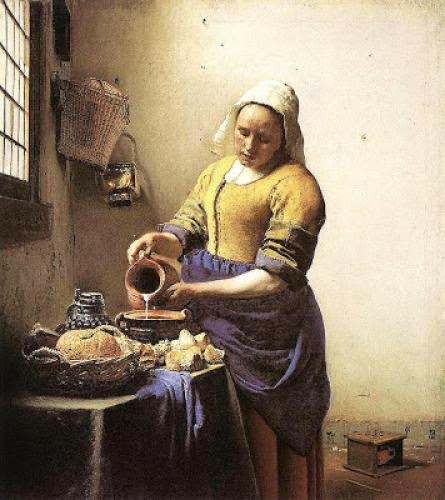
.... The word is simply the Latinate term for "calling." Perhaps the best summation of the concept is in 1 Corinthians 7:17: "Only let each person lead the life that the Lord has assigned to him, and to which God has called him."
God "assigns" different kinds and places of service for each Christian and then "calls" each Christian to that assignment. The Reformation theologians fleshed out this concept with other biblical teachings about God's workings in society and the Christian's life in the world (e.g., Ephesians 5-6, Romans 12-13, 1 Corinthians 7).
The great theologian of vocation was Martin Luther, who developed the teaching in his battles with monasticism-the view that the spiritual life requires withdrawal from secular life-and in defining "the priesthood of all believers."
For Luther, vocation, like justification, is ultimately God's work. God gives us our daily bread through the vocations of the farmer, the miller, and the baker. God creates new human beings through the vocations of fathers and mothers. God protects us through lawful magistrates.
Vocation is, first of all, about how God works through human beings. In His providential care and governing of His creation, God chooses to distribute His gifts by means of ordinary people exercising their talents, which themselves are gifts of God.
Thus, God heals by means of doctors, nurses, and other medical vocations. He makes our lives easier by means of inventors, scientists, and engineers. He creates beauty by means of artists, authors, and musicians. He gives us clothing, shelter, and other things we need by means of factory workers, construction contractors, and others who work with their hands. He cleans up after us by means of janitors and garbage collectors.
God thus looms behind everyone who provides us with the goods or services that we need. In one of Luther's many memorable lines, God milks the cows through the hands of the milkmaid. This means that all work and all workers deserve honor. Whereas the world might look down on milkmaids and garbage collectors, they actually bear the sacred presence of God, who works in and through them.
God created us to be dependent on others-meat processors, manufacturers, journalists, lawyers, bankers, teachers, parents-and, through them, we are ultimately dependent upon God Himself.
Just as God is working through the vocation of others to bless us, He is working through us to bless others. In our vocations, we work side-by-side with God, as it were, taking part in His ceaseless creative activity and laboring with Him as He providentially cares for His creation..... [more]Vocation as the Christian Life Cranach: The Blog of Veith
























